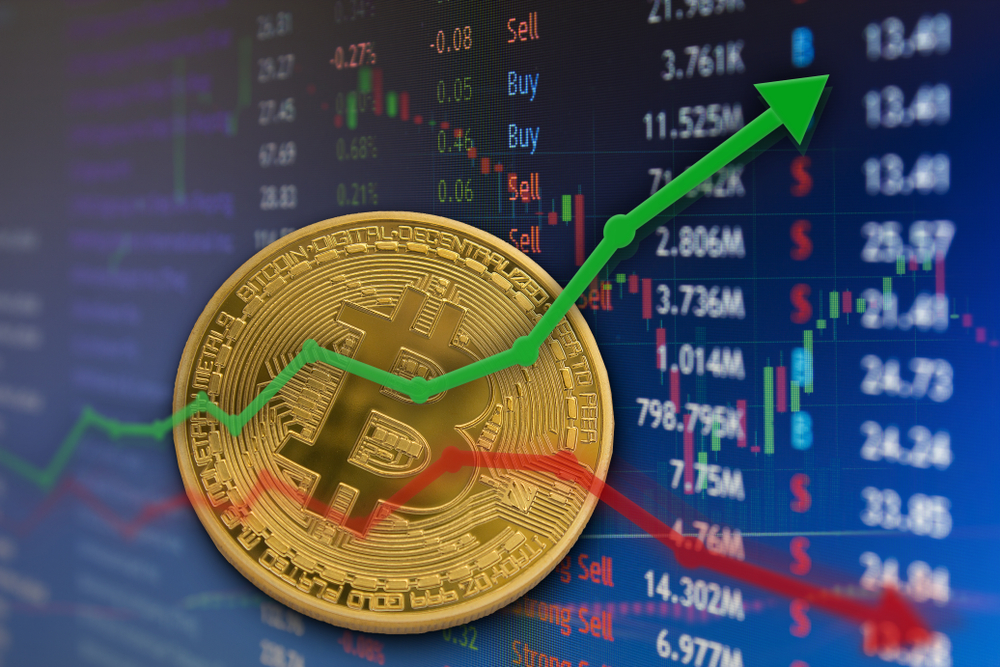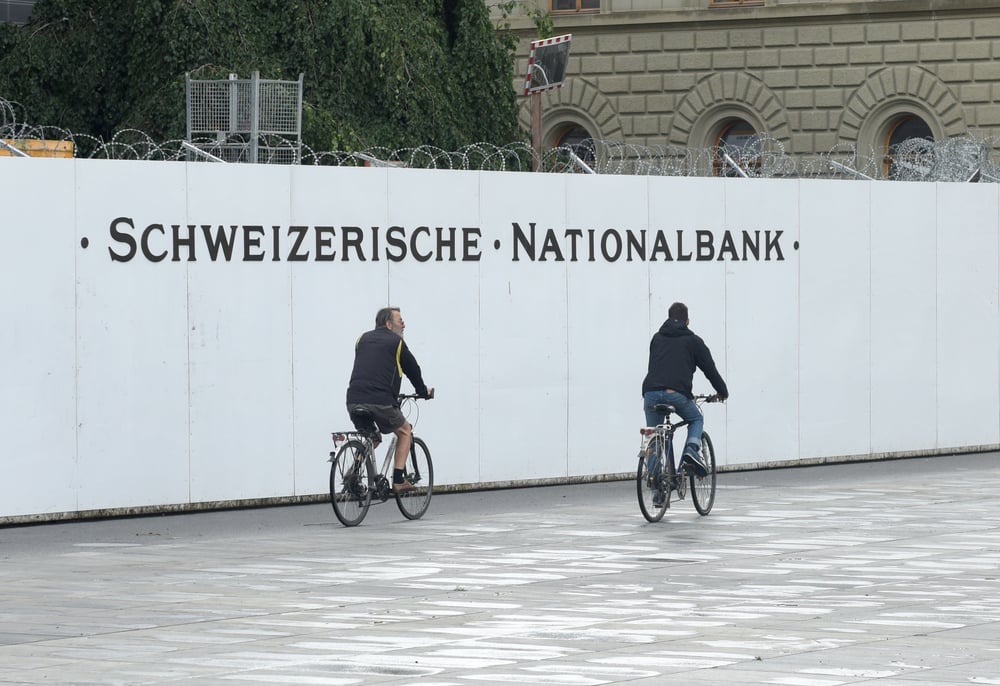The Daily: Analysts Predict Bitcoin Will Rebound, Enthusiasm for State Coins Lost

In today’s Bitcoin in Brief we mention some optimistic mid to long term predictions for crypto markets. And while decentralized currencies are hurting in a bearish month, the prospects for state-issued virtual money look even dimmer. Another senior Swiss central banker has noted the diminishing enthusiasm of governments to mint digital coins. Venezuela gives an example – Caracas has recently fired the nation’s crypto superintendent, reportedly for failing to raise billions through Maduro’s favorite El Petro.
Also read: Bitcoin in Brief: Plagiary, Numerology, and Nano Does a No-No
Bottom Line: Bitcoin Will Recover
It takes a lot of optimism to make bullish predictions at a moment like this, but if it’s a relatively long term prognosis for growth, preceded by a short term one for further drop, then it does sound like a safe bet. Todd Gordon, founder of Tradinganalysis.com, is one of those analysts who believe the bottom line is that Bitcoin will eventually recover, by early 2019 to be precise.
“I did expect Bitcoin to drop, I thought for a long time we’re going to drop below $5,000,” Gordon told CNBC. He actually expects BTC prices to decrease a little more than that but he is also positive that the market will turn somewhere in the $3,000 to $4,000 range. “I think by the time this contest is over in February, we’ll be well back above $10,000 and in a pretty good shape,” he added.

According to Todd Gordon, the correction we have seen from $19,000 down, in terms of percentage drop, is “inconsequential,” and “very much expected,” compared to the gains since 2015, when Bitcoin took about a 78 percent hit in the aftermath of the Mt. Gox hack. “Right now we are about two thirds of the way through that equal correction,” he said.
Gordon noted that his prediction is based on a “beautiful uptrend” on a percent change chart. “You can’t look on bitcoin on a traditional, linear, arithmetic chart,” he warned. The expert emphasized that the current 17 percent average weekly high-to-low range is the “lowest bitcoin is ever seen,” as the movement has reached 30-40 percent at times in the past. “If I am down 30 percent on bitcoin in this contest, that’s nothing – it can make that up in two weeks,” the analyst added.
Others Like the $10,000 Mark Too
Other members of the crypto space have made similar predictions about the mid-term prospects for bitcoin. At the end of May, blockchain venture capitalist Spencer Bogart said he expected the price of BTC to rise again above $10,000 per coin by the end of 2018, noting that the cryptocurrency is still worth buying, despite its continued losses.
 “In the past, when the value of BTC dropped by 50 or 60 percent, a cloud of fear used to develop and people seriously questioned if bitcoin was over,” Bogart told CNBC. However, he highlighted a key difference between today and the crashes of the past – the exponential amount of development and adoption we have seen since those times. Bogart, a partner ат Blockchain Capital, also noted that most coins are overvalued in comparison with bitcoin. He advised investors to sell cryptos like cardano, tron, IOTA and NEO, but stressed they should hold cryptocurrencies like bitcoin cash (BCH), ethereum, ripple, and EOS.
“In the past, when the value of BTC dropped by 50 or 60 percent, a cloud of fear used to develop and people seriously questioned if bitcoin was over,” Bogart told CNBC. However, he highlighted a key difference between today and the crashes of the past – the exponential amount of development and adoption we have seen since those times. Bogart, a partner ат Blockchain Capital, also noted that most coins are overvalued in comparison with bitcoin. He advised investors to sell cryptos like cardano, tron, IOTA and NEO, but stressed they should hold cryptocurrencies like bitcoin cash (BCH), ethereum, ripple, and EOS.
Most cryptocurrencies saw losses of up to 20 percent over a 24-hour period yesterday. Many observes attributed the latest dump to the recent measures taken by Japan’s financial regulator. The Financial Services Agency issued six new business improvement orders to crypto exchanges Bitflyer, Tech Bureau, Bitpoint Japan, Btcbox, Bitbank, and Quoine. In recent weeks markets have been also reacting to a number of negative events such as the hacks of Korean exchanges Coinrail and Bithumb, as well as the exposure of scams and suspected market manipulations.
Enthusiasm for State-Backed Cryptos Dying Out
Countries are unlikely to issue national cryptocurrencies any time soon, according to a high ranking representative of the Swiss National Bank’s management. Central banks around the world have become skeptical of introducing state-backed digital currencies, Thomas Moser, an alternate member of the governing board of SBN, told Business Insider.
“In the beginning, there was a lot of interest and enthusiasm about issuing their own national cryptocurrency but I think, in the meantime, that enthusiasm has slowed again because of the implications it would have for financial stability,” Moser explained. Nevertheless, he said he would not be surprised if national cryptocurrencies emerged in the longer term but noted that currently everyone is waiting for someone else to do it first.

Thomas Moser thinks that to some extent it makes sense to have an electronic version of the banknote but warned the implications are substantial. “The advantages are relatively small but the unknown risks are potentially large so I think the balance is to be cautious.”
Moser’s comments reflect the position of another senior representative of Schweizerische Nationalbank. In April, Andrea Maechler, member of its governing board, stated that “private-sector digital currencies” are better and less risky than any version offered by a central bank. A government-backed coin “would deliver scarcely any advantages, but would give rise to incalculable risks,” she warned, noting that it would make it easier for people to withdraw money if they felt a bank was in trouble.
Venezuela’s Crypto Superintendent Reportedly Fired
 Carlos Vargas, Venezuela’s Superintendent of Cryptocurrency, has recently left his post. Some local media reported that actually he has been fired by President Maduro after his team failed to deliver on the promises to raise billions through the initial coin offering of the national oil-backed cryptocurrency, the Petro.
Carlos Vargas, Venezuela’s Superintendent of Cryptocurrency, has recently left his post. Some local media reported that actually he has been fired by President Maduro after his team failed to deliver on the promises to raise billions through the initial coin offering of the national oil-backed cryptocurrency, the Petro.
According to a publication by Caracas Chronicles, only 2,266 petros have been transferred so far on the distributed ledger that tracks their movement. Even if all of them were sold at $60 per coin, the outlet speculates, the government has raised no more than $136,000. That’s way below the once promised $5 billion.
Very little is known about the new superintendent, Jocelit Ramírez, and his team. He is believed to be very close to Vice President Tareck El Aissami.
Despite threats by officials to restrict decentralized cryptocurrencies and crack down on exchanges, Venezuelan bitcoin trade on platforms like Localbitcoins has spiked in recent months, largely due to the unattractiveness of the hyperinflated national fiat, the bolivar. The socialist government in Caracas has had hard time convincing its partners to accept the petro in bilateral trade. Several weeks ago, India rejected Maduro’s proposal to buy Venezuelan oil at discounted petro prices.
What are your expectations for the future of decentralized cryptocurrencies and state-issued digital coins? Let us know in the comments section below.
Images courtesy of Shutterstock.
Make sure you do not miss any important Bitcoin-related news! Follow our news feed any which way you prefer; via Twitter, Facebook, Telegram, RSS or email (scroll down to the bottom of this page to subscribe). We’ve got daily, weekly and quarterly summaries in newsletter form. Bitcoin never sleeps. Neither do we.
The post The Daily: Analysts Predict Bitcoin Will Rebound, Enthusiasm for State Coins Lost appeared first on Bitcoin News.
from Bitcoin News https://ift.tt/2KahpBY
Labels: Bitcoin
0 Comments:
Post a Comment
Subscribe to Post Comments [Atom]
<< Home